Take our quiz to see how well you know your ‘complicity’ facts


Take our quiz to see how well you know your ‘complicity’ facts

As governments look into contact tracing apps to identify and isolate people with coronavirus, Rachael Jolley discusses whether signing up to apps – and other actions we take online and off – make us complicit in giving away our freedoms
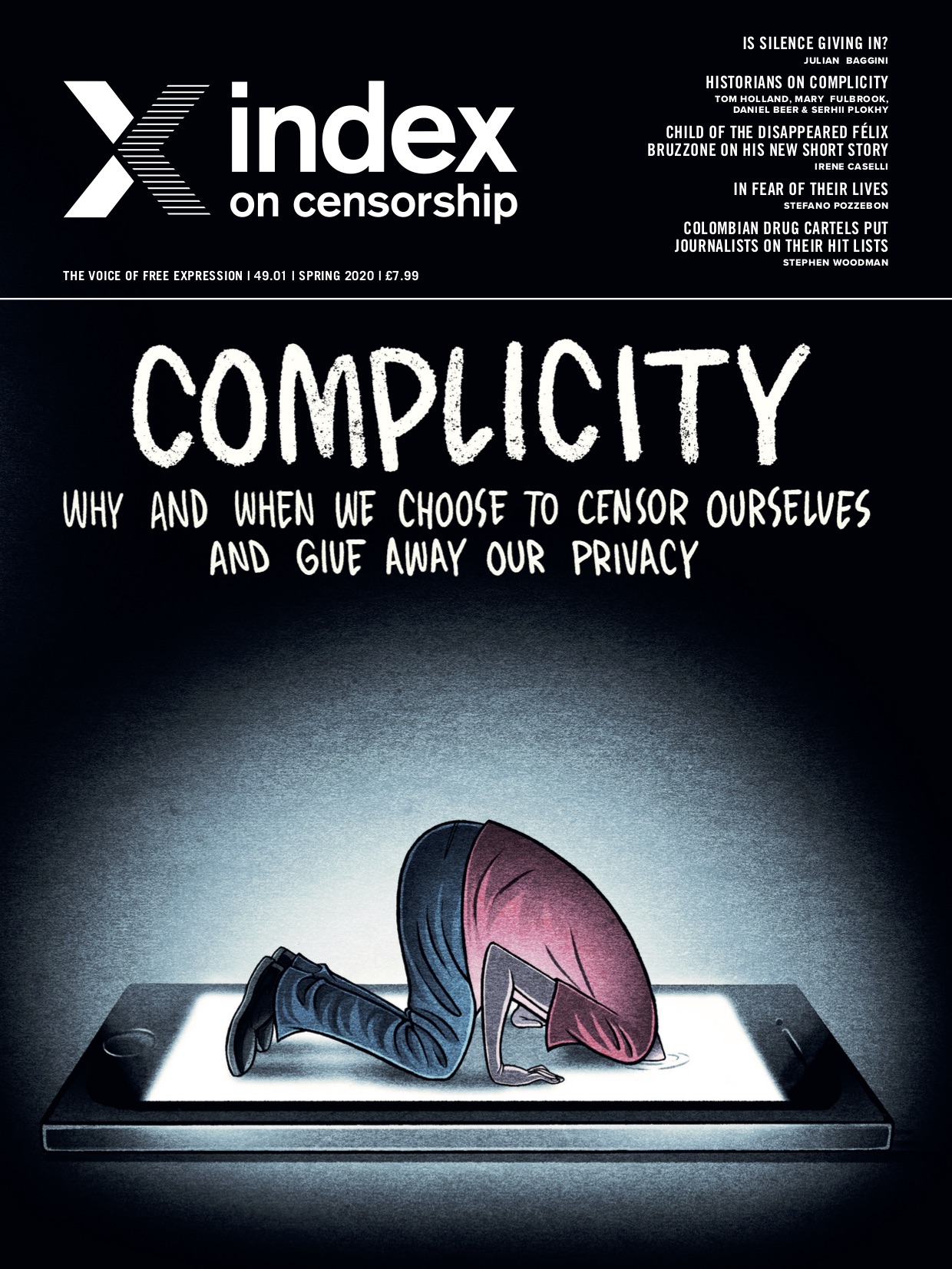
The spring 2020 Index on Censorship magazine podcast with Mary Ellen Klas, Moa Petersén and Noelle Mateer discusses surveillance in China, the Swedish trend to put microchips under the skin and the worsening media environment in the USA as a result of coronavirus
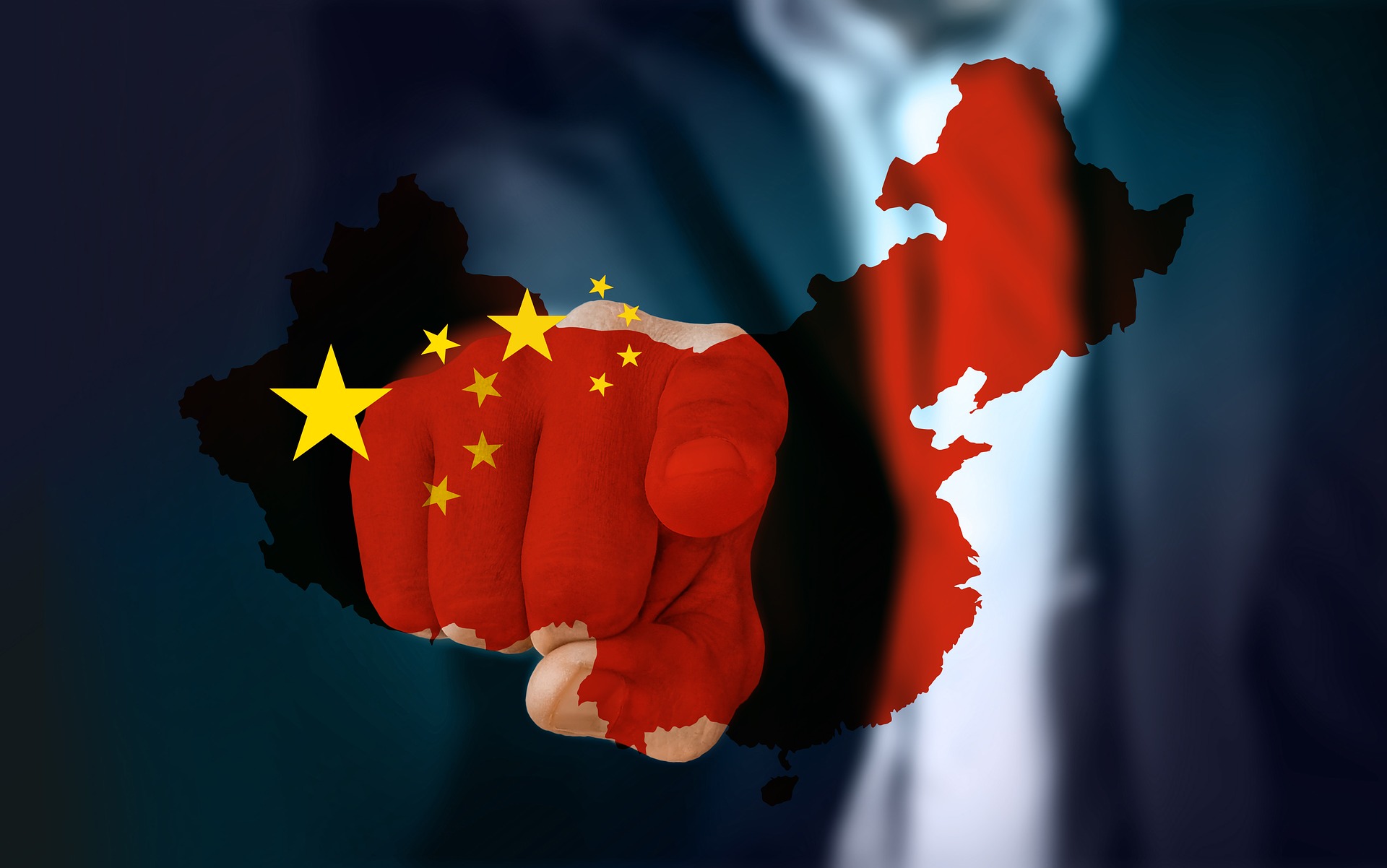
Will international companies take on China’s attitude to censorship after the pandemic? Charlotte Middlehurst reports
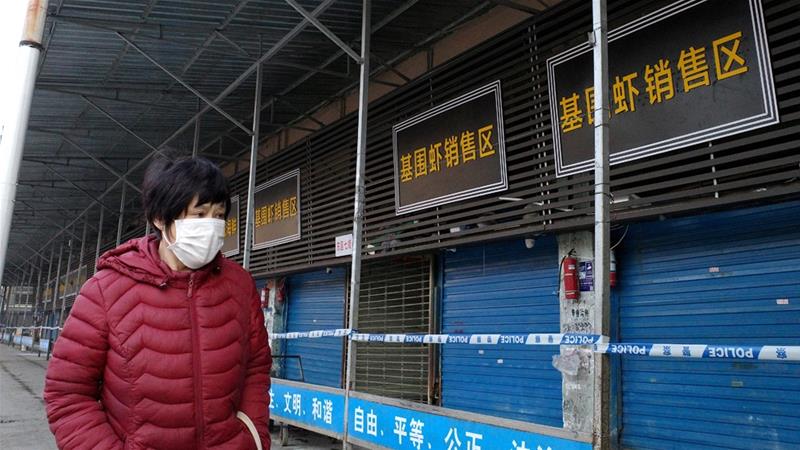
A Chinese writer explains what it’s like living in a country where information is tightly controlled, and misinformation rife, during the coronavirus crisis

The spring 2020 issue of the magazine looks at the different ways in which we as individuals might give away our own freedoms, whether we want to or not

Poor job prospects and a deeply divided society are stopping Spanish journalists covering certain subjects, reports Silvia Nortes

What role do we play in our own free speech issues? This is the question we pose in the Index on Censorship spring 2020 magazine. From the journalists who self-censor and the academics who don’t stand up to their arrested colleagues to the average person who shares lots of data with a third party, we are all playing a role in giving away some of our basic rights, information and privacy. Whether we don’t realise we are doing it, we don’t have much other choice or we simply think the trade is worth making, we can be complicit in letting our own rights erode. The ways we are complicit are multiple. Noelle Mateer offers a personal account about living in Beijing under a landlord who embraced the growing trend for video cameras at home. Nathalie Rothschild introduces us to the Swedes who are willingly having microchips inserted under their skin. Is this a great way to keep your own data very, very close to you or a gateway to further data exploitation? Helen Lewis talks about how our fears to enter certain heated discussions might be making vulnerable groups more vulnerable. And Mark Frary tests out the apps to see just how much we are giving away. Elsewhere Stephen Woodman talks to Colombian journalists living in fear of drug cartels. We also publish extracts from a Brazilian documentary that was censored by Jair Bolsonaro, plus a short written exclusively for the magazine by Najwa Bin Shatwan.
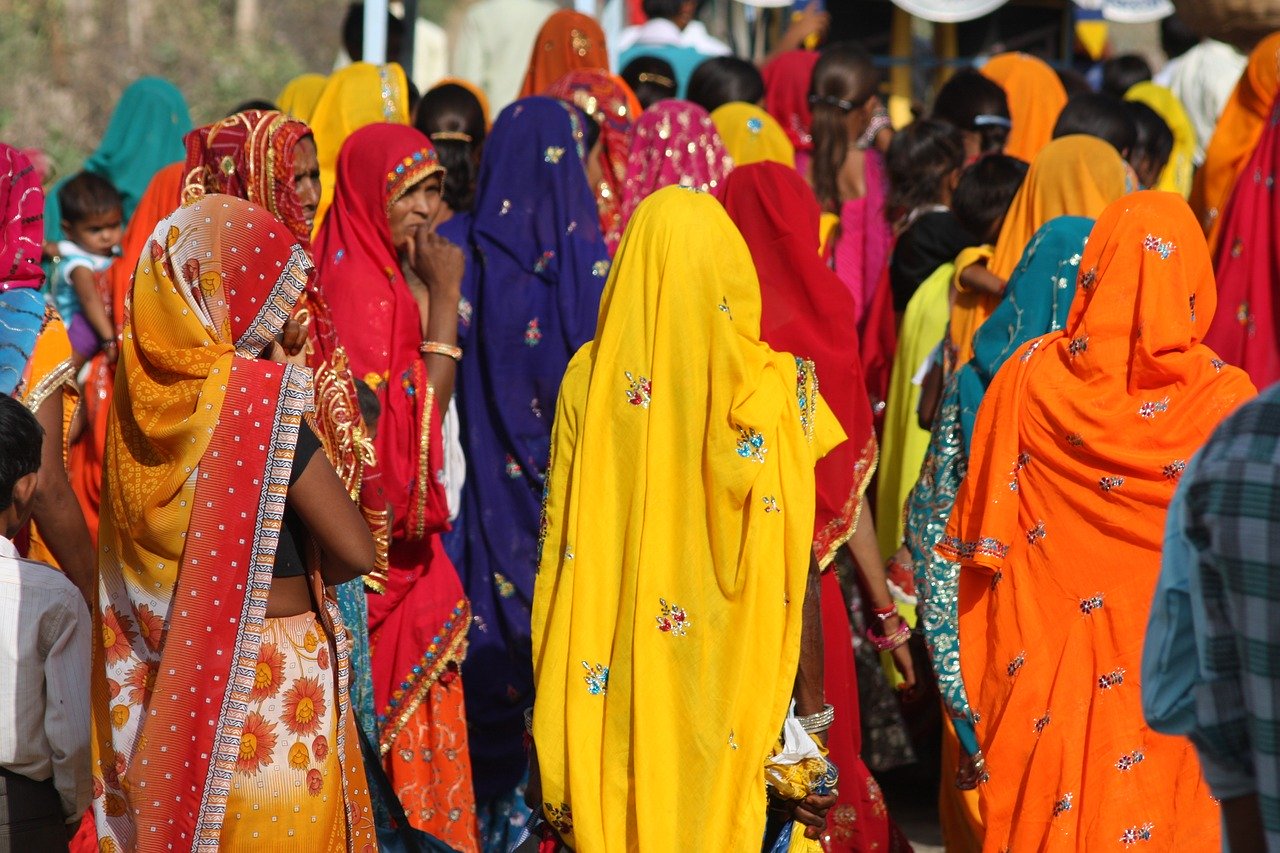
A reading list of articles from the Index archives covering press freedom, shows of patriotism and online trolling
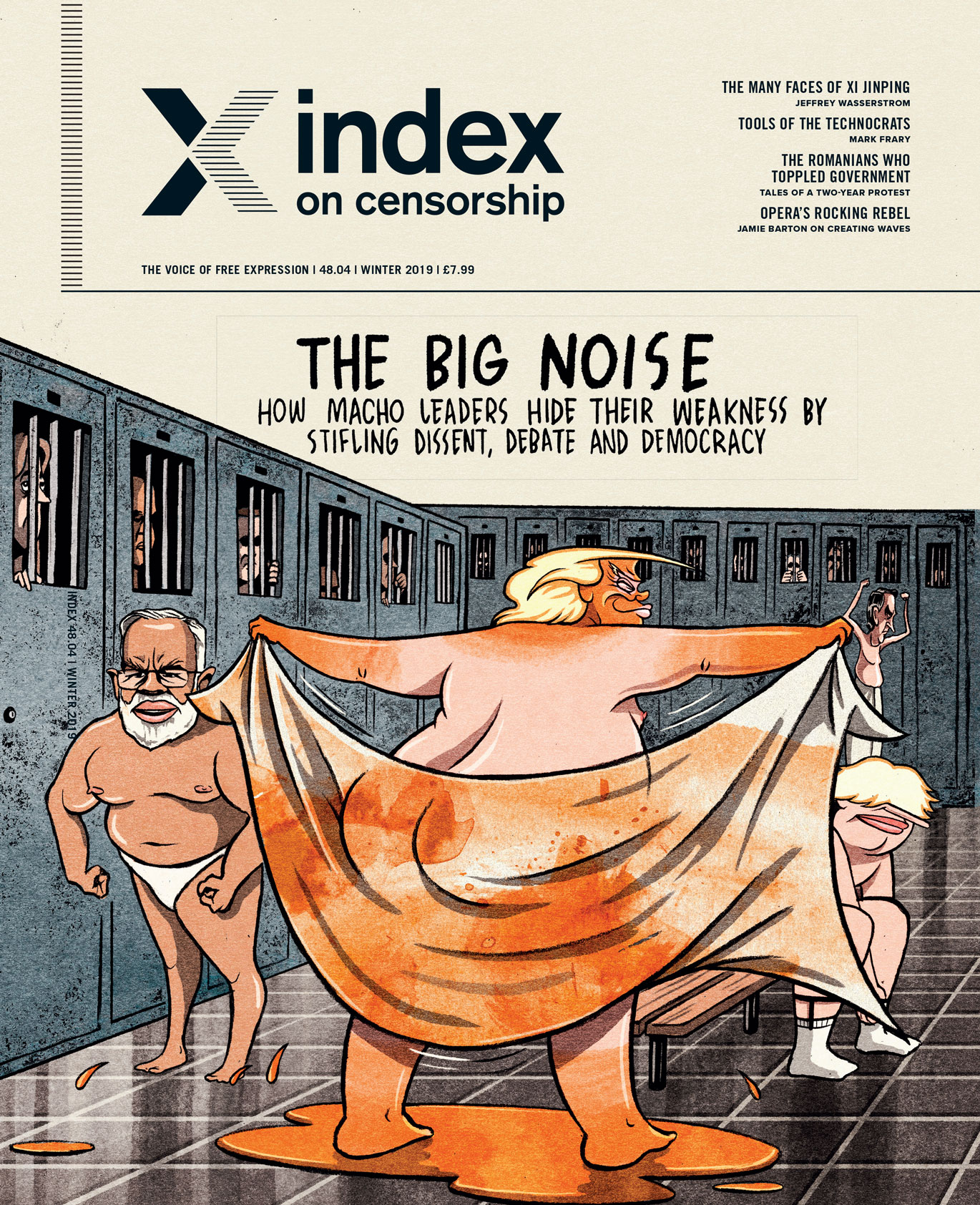
Editor-in-chief Rachael Jolley argues in the winter 2019 issue of Index on Censorship magazine that a new generation of democratic leaders is actively eroding essential freedoms
A quarterly journal set up in 1972, Index on Censorship magazine has published oppressed writers and refused to be silenced across hundreds of issues.
The brainchild of the poet Stephen Spender, and translator Michael Scammell, the magazine’s very first issue included a never-before-published poem, written while serving a sentence in a labour camp, by the Soviet dissident Aleksandr Solzhenitsyn, who went on to win a Nobel prize later that year.
The magazine continued to be a thorn in the side of Soviet censors, but its scope was far wider. From the beginning, Index declared its mission to stand up for free expression as a fundamental human right for people everywhere – it was particularly vocal in its coverage of the oppressive military regimes of southern Europe and Latin America but was also clear that freedom of expression was not only a problem in faraway dictatorships. The winter 1979 issue, for example, reported on a controversy in the United States in which the Public Broadcasting Service had heavily edited a documentary about racism in Britain and then gone to court attempting to prevent screenings of the original version. Learn more.